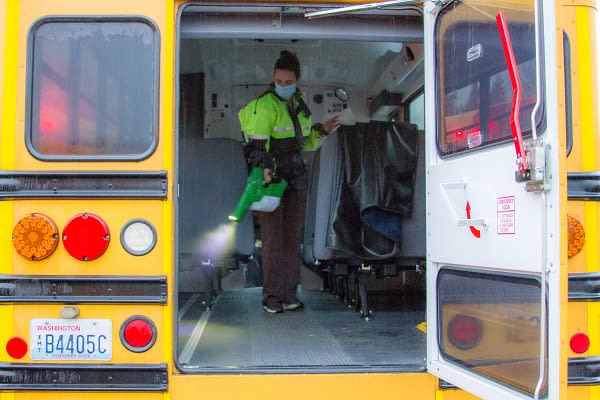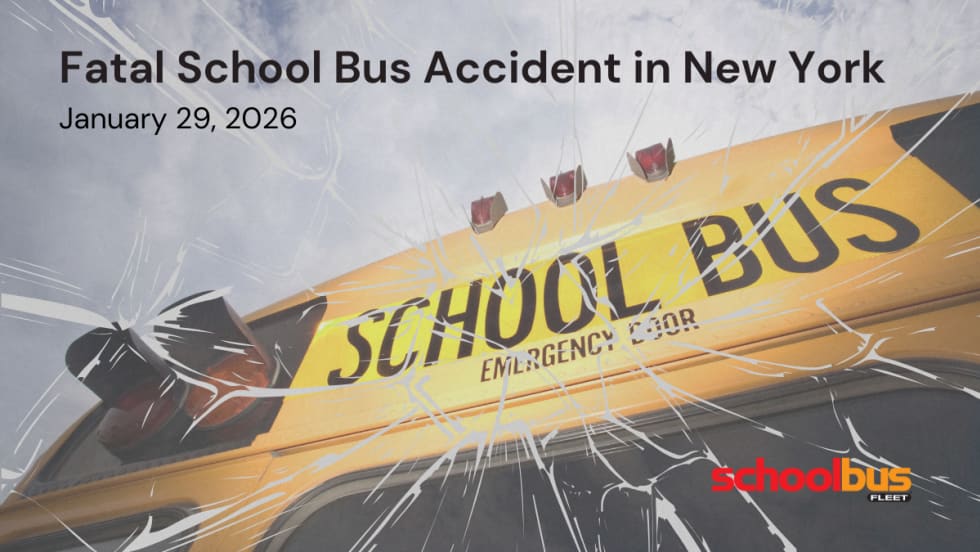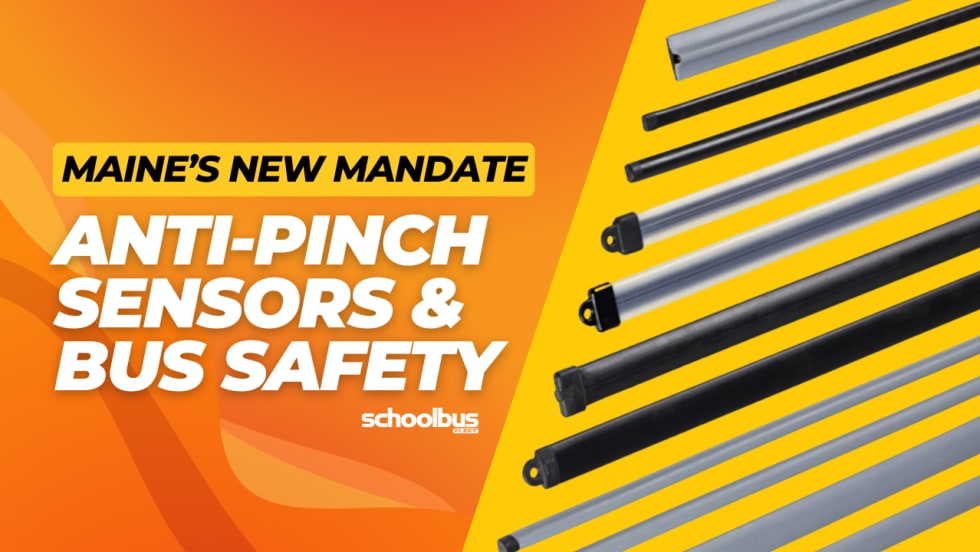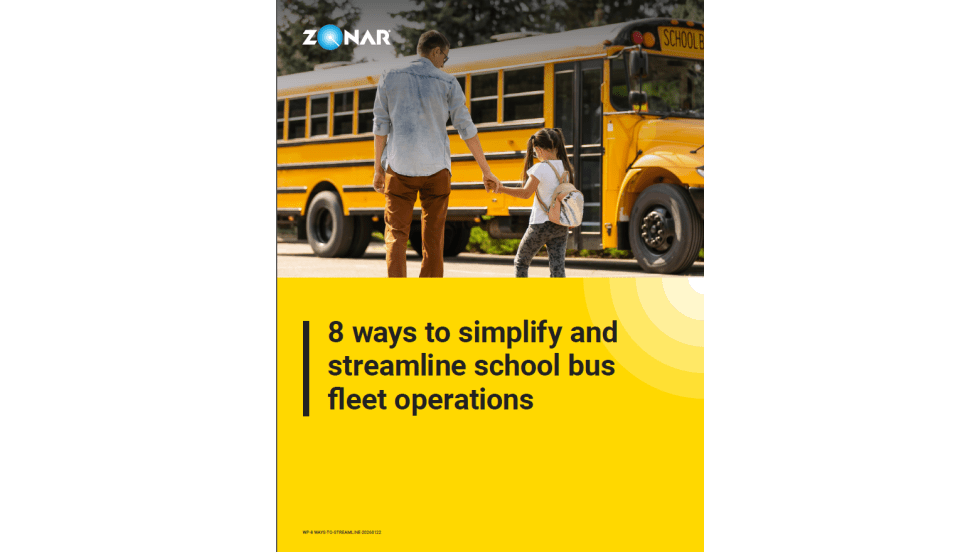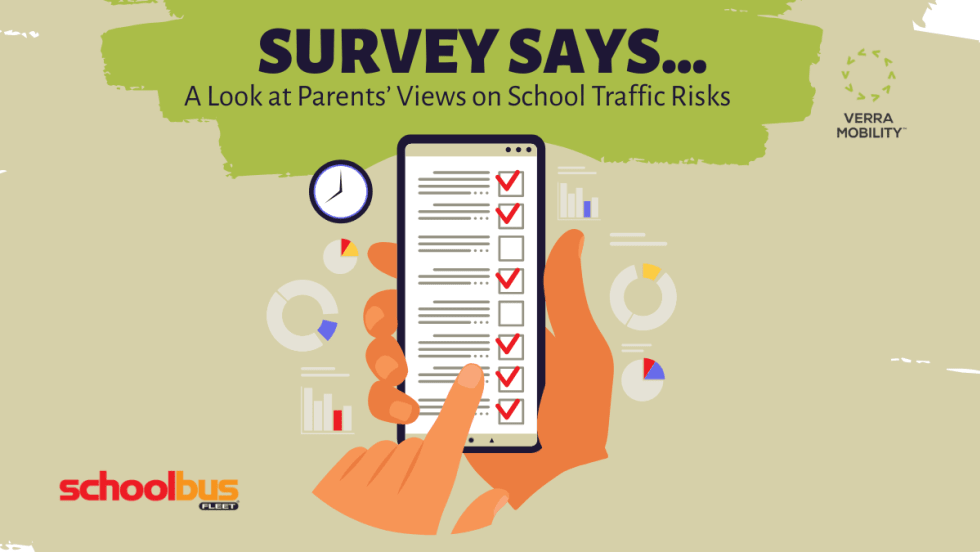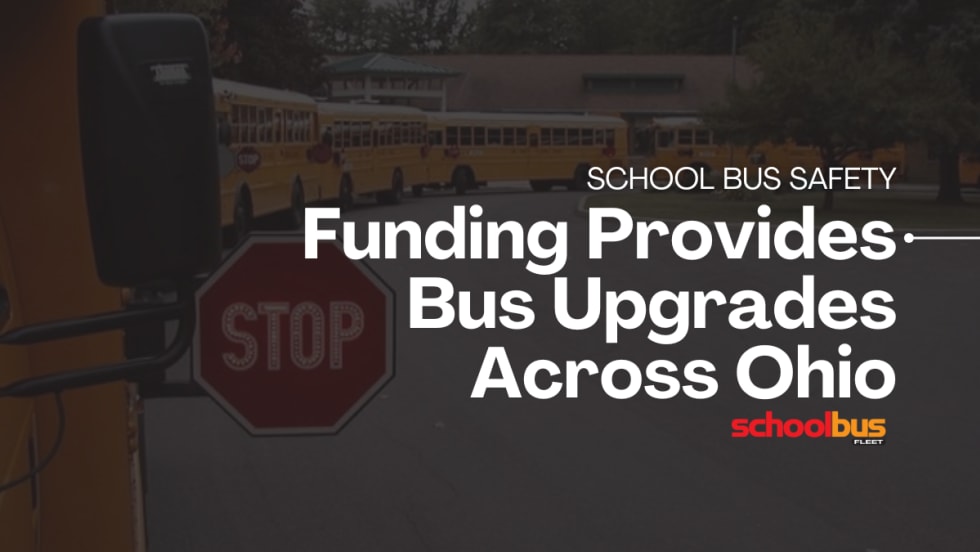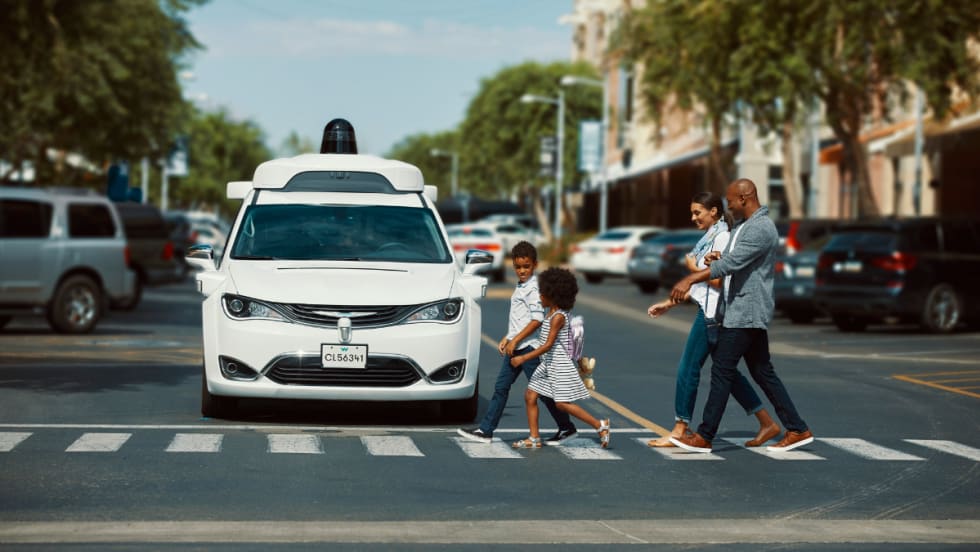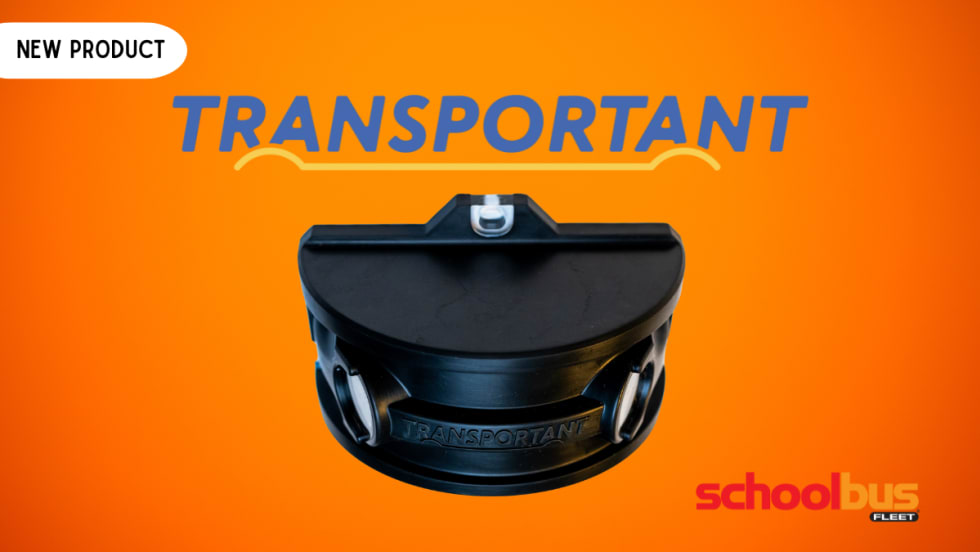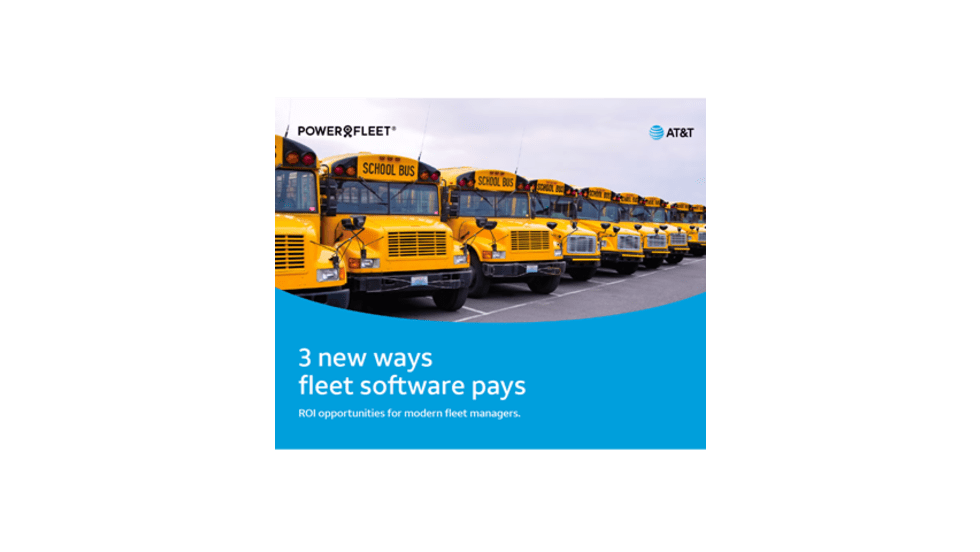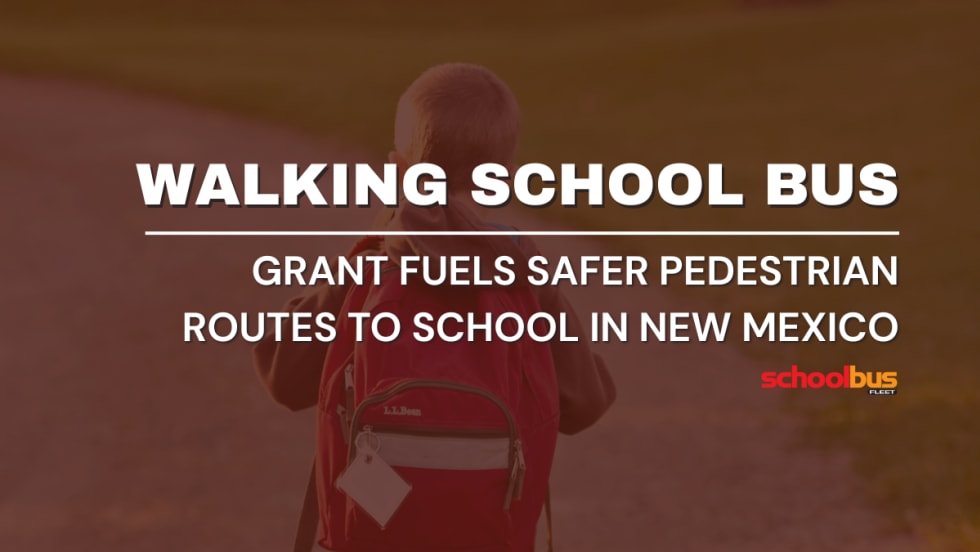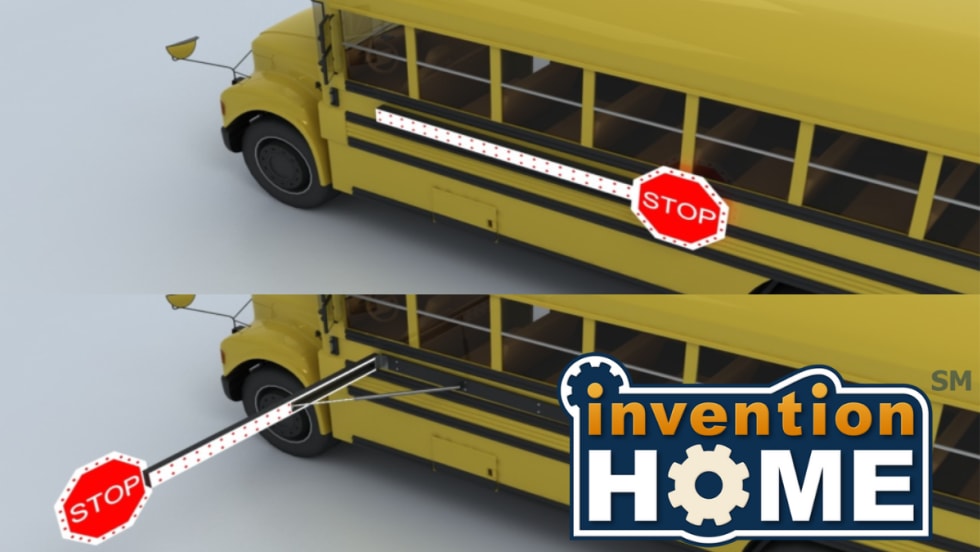A transportation cooperative for four Washington school districts has employed new school bus technology and cleaning protocols to ensure students are safe during the pandemic.
KWRL, which provides transportation service for Kalama, Woodland, Ridgefield, and La Center school districts, sanitizes each of its school buses using electrostatic fogging sprayers that spray an evaporating cleaning solution, according to a news release posted on Woodland Public Schools website. The solution reportedly cleans every surface on each school bus, including the underside of the bus’s seats.
“Our approach to everything had to change when the pandemic started,” said Shannon Barnett, KWRL’s transportation director, in the news release. “We purchased the equipment for deep cleaning the instant COVID-19 hit so we could prepare for what might come our way.”
In addition to the electrostatic spray, bus drivers are required to thoroughly disinfect high-touch points on their bus such as handrails, driver seats, steering wheels, and driver controls after each route.
Mary Martin, one of KWRL’s bus drivers, volunteered to take on the extra work of disinfecting buses at the end of each day, mixing the cleaning solution and fogging each bus with the electrostatic sprayers, according to Woodland Public Schools. Martin can reportedly sanitize up to 25 to 30 buses in about half an hour.
KWRL has also introduced several new onboard safety rules for students, including wearing masks, keeping windows partially open for improved airflow, and prohibiting food and beverages on board. Drivers must also keep detailed seating charts to know which students rode the bus and where they sat that day to help with contact tracing, Barnett told the district.
In December, prior to the pandemic, KWRL transitioned its entire operations to a paperless, digital recordkeeping system. The system, which was developed by Woodland Public Schools information technology services, helped make scheduling routes during the pandemic — with hybrid learning schedules and other school programs requiring transportation — much easier, according to Barnett. He also said that collaborating with all four school districts helped streamline scheduling and routing.
“All of our drivers use portable computer tablets to log their routes, track passengers, perform health attestations, and check their work email,” Barnett said. “Going paperless has dramatically improved efficiency — we save dozens of work hours spent of data entry time each week when staff had to transpose our drivers’ written notes into our computer databases, plus going digital removed any errors from difficult-to-read handwriting or ink smudges.”
Additionally, bus drivers use the portable tablets to submit maintenance requests directly to the mechanics.
While the digital transition improved customer service for students and families, Barnett said that he appreciates his transportation staff for going the extra mile, ensuring students get to and from school and have meal delivery during the pandemic.
“We have a very dedicated group of drivers and have seen excellent participation from each of them during this time,” he said. “We are truly blessed to have such outstanding staff.”



